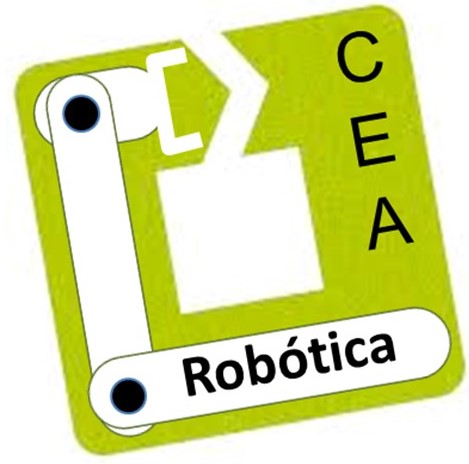ViCOROB is the research group in Computer Vision and Robotics at the University of Girona (UdG). It is the biggest research group of the UdG, both in terms of members and income. With an average annual income of € 1.2 million, it is composed of 45 people (20 doctors). His research is applied in the fields of medical imaging, 3D perception for industrial and robotic inspection, underwater vision, underwater robotics and educational robotics. Since its foundation, the group has created 5 technology-based companies (3 of them recognized as spin-offs of the UdG and in which the university has an active participation), has licensed 4 technologies that are being exploited commercially and has registered 5 patents, all of them licensed.
Entity type: Research Group of University/Research Centre/Public Research Organisation
Size: 11-50
Innovation group:
- Healthcare
- Industrial Robotics
- Laboratory Robotics
State: Spain
Country: Spain
Contact: Mireia Frigola (mireia.frigola@udg.edu)
Web: https://vicorob.udg.edu/
Type of tecnology base of the institution activities
- Healthcare
- Laboratory Robotics
- Maintenance and Inspection
- Marine Robotics
- AI and Cognition
- Autonomous Navigation
- Software Engineering, Systems Integration and Systems Engineering
- Perception
- Education and training
Types of activities developed by the institution
- Robot programming (software development)
- Research and development projects
Project 1
Name: The Atlantic Testing Platform for Maritime Robotics: New Frontiers for Inspection and Maintenance of Offshore Energy Infrastructures.Web: https://www.atlantis-h2020.eu/
Summary:
Offshore wind energy makes an important contribution to the decarbonisation of our society. As recent wind farms are being installed further away from the coast at deeper locations, they get more complex and the risk of operating and maintaining such offshore assets increases substantially. The EU-funded ATLANTIS project is developing a pioneer pilot infrastructure capable of demonstrating key enabling robotic technologies for the inspection and maintenance of offshore wind farms. A large-scale pilot will be operated and demonstrated by a strong collaboration between the research community and the industrial offshore energy ecosystem. This project intends to accelerate the adoption of robotic-based solutions by end-users, in particular, by highlighting the added-value of robotics to the safety and efficiency of O&M activities.
Funding source: Yes
Funded externally: Yes
Developed in consortium: Yes
Project 2
Name: Intelligent Total Body Scanner for Early Detection of MelanomaWeb: https://itobos.eu/
Summary:
In the fight against cancer, effective screening and early detection are key. Melanoma is one of the most aggressive cancers that can be detected at an early stage. It is responsible for the majority of skin growths. However, current screening methods involve checking each individual pigmented lesion for melanoma signs, which is often inefficient and time-consuming. The EU-funded iToBoS project will develop a groundbreaking AI diagnostic platform to assist in the timely detection of melanoma. The platform will consist of a cutting-edge body scanner and accompanying computer-aided diagnostic tool that will provide accurate, personalised early diagnosis of melanoma, saving lives and healthcare resources worldwide.
Funding source: Yes
Funded externally: Yes
Developed in consortium: Yes
Project 3
Name: Blended Montessori-Creative Technologies approach for successful inclusion in Multicultural SchoolsWeb: https://montessoritech.eu/
Summary:
Montech project will foster social inclusion and equity in multicultural schools across Europe through highly innovate and engaging activities based on a new approach that blends the Montessori method with cutting-edge Maker Education learning experiences
Funding source: Yes
Funded externally: Yes
Developed in consortium: Yes
Project 4
Name: Deep-Learning for Multimodal Sensor FusionWeb: https://www.deepersense.eu/www/
Summary:
The importance of robots to numerous tasks and applications is increasing rapidly. Robots are often faster or more accurate than people, or they can assimilate much more data, or perhaps they are surrogates that can travel to places that are dangerous for their human counterparts. Equipping them with the capacity for deep learning has brought them even closer to humans architecturally and functionally, achieving recognition accuracy at unprecedented levels. The EU-funded DeeperSense project will enhance the environmental sensing capability of tomorrow's robots using AI and deep learning to combine visual and non-visual information the way humans do. The first application focus will be on the complicated and unknown environment of underwater autonomous robots
Funding source: Yes
Funded externally: Yes
Developed in consortium: Yes
Project 5
Name: An alliance of European marine research infrastructure to meet the evolving needs of the research and industrial communities.Web: https://www.eurofleets.eu/
Summary:
With our oceans and seas playing a key role in monitoring climate change, marine research is very important for a better understanding of the changes in our environment and the effects these changes pose for our future. The ocean is difficult to explore and requires specialist vessels and equipment which the EU-funded EurofleetsPlus project is providing. With a fleet of 27 state-of-the-art research vessels from European and international partners, marine researchers and scientists will have the opportunity to work with the best marine equipment and infrastructures, exploring the ocean in ways that have not been possible until now, ultimately enabling scientists to better conduct their research. The alliance will prioritise supporting innovation and research on clean and healthy oceans.
Funding source: Yes
Funded externally: Yes
Developed in consortium: Yes

